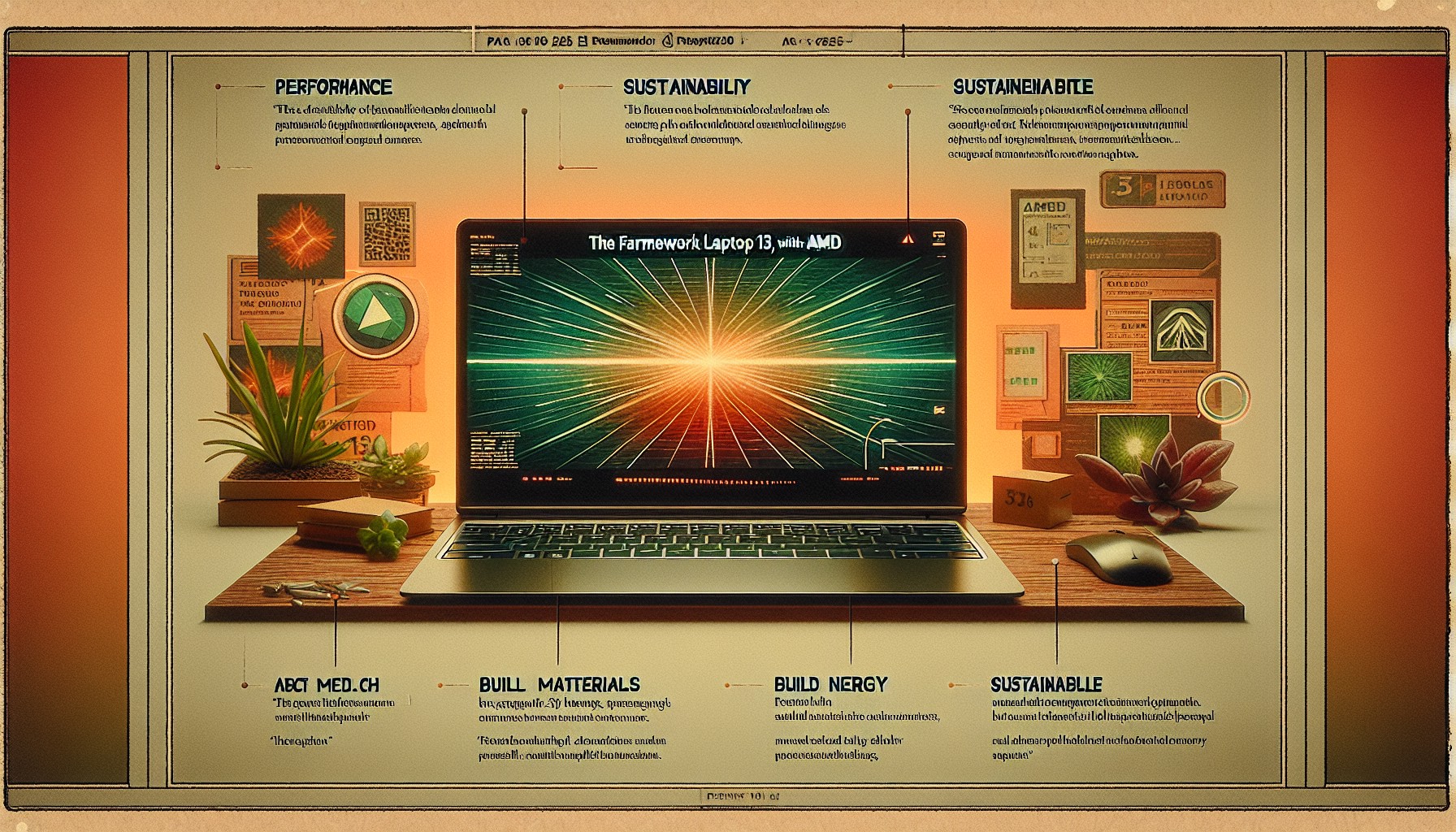In an era where technological obsolescence seemed to be the norm, Framework’s innovative approach to creating a repairable and upgradeable laptop is emerging as a game-changer, not just for consumers but for the technology sector as a whole. As we delve into 2025, this bold bet is finally reaping the rewards, and its implications stretch far beyond mere hardware. With the integration of Artificial Intelligence (AI) and machine learning, the Framework laptop’s adaptability and longevity are being maximized in ways that were previously unimaginable.
Framework’s vision was clear from the outset: to challenge the status quo of disposable tech by offering a sustainable alternative that empowers users. Unlike traditional laptops that often become obsolete within a few years, Framework’s modular design allows for easy upgrades and repairs. This means users can swap out components such as the CPU, RAM, and storage, keeping their device up to date without the need to purchase an entirely new one. This approach also aligns with the growing environmental consciousness among consumers and tech companies alike, as it significantly reduces electronic waste.
The real magic, however, comes with Framework’s seamless integration of AI to enhance the user experience and maintain the laptop’s performance over time. AI algorithms have been employed to optimize the hardware’s efficiency, predict component failures, and recommend timely upgrades. This proactive approach not only extends the lifespan of the device but also ensures it operates at peak performance, adapting to the evolving needs of its user.
Moreover, the AI-driven diagnostic tools embedded within the Framework ecosystem offer an unprecedented level of user empowerment. Users can easily run diagnostics to identify issues, receive step-by-step repair guides, and even order replacement parts directly through the interface. This level of autonomy was unheard of in the laptop market until Framework’s innovation came to the fore. It’s a testament to how AI can transform user interaction with technology from passive consumption to active engagement.
Framework’s strategy has also paid off in terms of market acceptance and competitive advantage. Tech enthusiasts and environmentally conscious consumers have embraced the brand, appreciating not only the sustainable aspect but also the customization opportunities. The ability to tailor a laptop to specific needs has resonated well with gamers, developers, and AI researchers who require specific configurations that can evolve over time. This adaptability is particularly crucial in AI and machine learning fields, where computational demands rapidly change with advancements in technology.
In addition to consumer benefits, Framework’s modular design and AI integration have stirred interest from educational and enterprise sectors. Educational institutions are finding value in devices that can be easily maintained and upgraded, reducing the overall cost of ownership. Enterprises, on the other hand, appreciate the AI’s ability to manage fleets of laptops, ensuring devices are always up to date and fully functional, which is critical for business continuity.
The ripple effect of Framework’s success is being felt across the tech industry. Other manufacturers are taking note, leading to a shift in how laptops are designed and marketed. The focus is moving towards sustainability, customizability, and intelligent systems that enhance the product lifecycle. It’s a change that aligns with the increasing demand for technology that not only meets current needs but is also future-proof.
As we look to the future, Framework’s pioneering work in creating a repairable and upgradeable laptop integrated with AI sets a precedent for what’s possible in consumer electronics. It challenges the industry to rethink product design, consumer engagement, and sustainability. In doing so, it opens up new possibilities for innovation and growth, proving that technology, when thoughtfully designed, can indeed be both cutting-edge and environmentally responsible.
